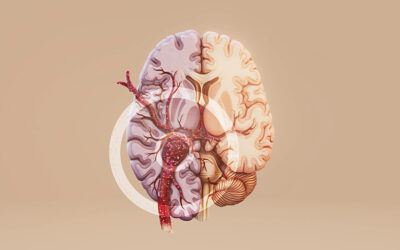Sleep Hygiene: Why It’s Just as Important as Diet and Exercise

Getting enough rest is not a luxury, it’s a necessity. While most conversations around a healthy lifestyle focus on food and exercise, sleep often takes a backseat. Yet, without proper sleep, even the best diet and workout routine may fall short of delivering their full benefits. In today’s fast-paced world, understanding the role of sleep hygiene has become essential for maintaining long-term physical and mental health. In this blog, we will discuss why sleep is just as important as diet and exercise, and how small changes in daily habits can lead to deeper, more restful sleep. Let’s start by understanding sleep hygiene.
Table of Contents
ToggleWhat is Sleep Hygiene?
Sleep hygiene refers to the set of habits, behaviours, and environmental factors that influence the quality and duration of sleep. Just as dental hygiene protects oral health, sleep hygiene supports better rest and overall well-being. It includes everything from maintaining a consistent sleep schedule to creating a calm, distraction-free sleep environment. Good sleep hygiene helps regulate the body’s natural circadian rhythm, making it easier to fall asleep, stay asleep, and wake up feeling refreshed.
Why is Sleep Important?
Sleep is more than just rest. It is a critical biological function that supports nearly every system in the body. During sleep, the brain consolidates memories, the immune system repairs itself, and vital processes such as hormone regulation and cell restoration take place. Without adequate sleep, the body struggles to maintain balance, leaving individuals more vulnerable to illnesses, emotional instability, and poor concentration. Just as exercise strengthens the body and nutrition fuels it, sleep restores and resets it, making it essential for a healthy, functional life.
How Sleep Affects the Body
Sleep plays a vital role in regulating many of the body’s key functions. When sleep is disrupted or insufficient, these processes begin to falter, often with wide-ranging consequences.
A healthy sleep cycle supports:
- Brain function: Quality sleep enhances focus, memory, emotional stability, and decision-making ability. Chronic sleep loss may contribute to anxiety, irritability, and poor judgement.
- Hormonal balance: Sleep influences hormones that regulate appetite, stress (cortisol), and growth. Disturbed sleep can lead to increased hunger and weight gain.
- Immune system strength: Deep sleep allows the immune system to recharge. Poor sleep can weaken immunity and increase susceptibility to infections.
- Heart and metabolic health: Sleep helps regulate blood pressure, blood sugar levels, and cholesterol. Long-term sleep deprivation is linked to diabetes, obesity, and cardiovascular disease.
- Muscle and tissue repair: Sleep promotes cell regeneration and recovery, especially important after physical activity or injury.
Hidden Sleep Disorders That May Be Disrupting Your Rest
Not all sleep problems are due to poor habits. In many cases, an undiagnosed sleep disorder may be the underlying cause of persistent fatigue or poor sleep quality. Recognising these conditions is the first step towards effective treatment. Sleep disorders that may be disrupting your rest include:
- Insomnia: One of the most common sleep disorders, insomnia is marked by difficulty falling asleep, staying asleep, or waking up too early. It may be short-term (acute) or long-lasting (chronic).
- Restless Legs Syndrome (RLS): A neurological condition that causes uncomfortable sensations in the legs and an uncontrollable urge to move them, especially at night, disrupting the ability to fall asleep.
- Obstructive Sleep Apnoea (OSA): Characterised by repeated pauses in breathing during sleep, often accompanied by loud snoring or gasping. It affects oxygen levels and sleep quality and can lead to heart problems if untreated.
- Sleep-Related Eating Disorder (SRED): Involves episodes of eating during partial arousals from sleep, often without full awareness. It may lead to weight gain, injuries, or other health risks.
- REM Sleep Behaviour Disorder (RBD): Individuals physically act out vivid dreams due to a lack of normal muscle paralysis during REM sleep. It may involve shouting, kicking, or falling out of bed.
- Hypersomnia: A condition characterised by excessive daytime sleepiness or prolonged nighttime sleep that doesn’t feel refreshing. It may stem from neurological issues or other medical conditions.
These disorders often go unnoticed or are mistaken for lifestyle issues. Timely evaluation by a sleep specialist or neurologist can help identify and manage them effectively.
Which is Most Important: Diet, Exercise, or Sleep?
When it comes to maintaining good health, diet, exercise, and sleep are often referred to as the three pillars of wellness. But which one matters most? The answer lies in balance.
Sleep, diet, and physical activity work together to support overall well-being. For instance, a nutritious diet fuels the body, exercise keeps it strong and agile, and sleep allows the body to recover and reset. A lack of sleep can reduce motivation to exercise and increase cravings for unhealthy food. Similarly, poor nutrition or sedentary habits can disrupt sleep quality.
Rather than choosing one over the other, it is important to recognise that sleep is just as essential as what we eat and how much we move. Neglecting any one of these pillars can throw the entire system off balance.
Benefits of Good Sleep Hygiene
Establishing and maintaining good sleep hygiene can have a profound impact on daily life. When sleep becomes consistent and restorative, the body and mind function at their best.
Key benefits include:
- Increased daytime energy levels: Better sleep leads to reduced fatigue and higher physical and mental stamina throughout the day.
- Improved mood: Quality sleep stabilises emotions and reduces the risk of irritability, anxiety, and low mood.
- Enhanced immune system function: Restful sleep strengthens the immune response, helping the body fight off infections more effectively.
- Decreased stress: Good sleep improves the body’s ability to handle stress and recover from daily pressures.
- Improved brain function: Memory, concentration, problem-solving, and learning ability are all supported by consistent sleep.
- Better blood sugar regulation: Sleep helps maintain healthy insulin sensitivity, reducing the risk of metabolic conditions such as diabetes.
Understanding Bad Sleep Hygiene
While good habits can promote restful sleep, certain behaviours, often overlooked, can quietly sabotage sleep quality over time. Recognising and correcting these can make a significant difference. Common examples of poor sleep hygiene include:
- Exercising close to bedtime: Intense physical activity late in the evening can overstimulate the body and delay sleep onset.
- Eating or drinking right before bed: Heavy meals or late-night snacking may lead to indigestion or discomfort, making it harder to fall asleep.
- Excessive caffeine consumption: Caffeine, especially in the late afternoon or evening, can interfere with the ability to wind down naturally.
- Unfavourable sleep environment: Noise, bright lights, or uncomfortable mattresses can disrupt the body’s ability to relax.
- Screen time just before bed: Using phones, laptops, or televisions exposes the eyes to blue light, which suppresses melatonin and delays sleep.
These habits may seem harmless at first but can contribute to poor sleep over time. Making small adjustments in these areas is often the first step towards better rest.
How to Practise Good Sleep Hygiene
Creating a consistent and calming sleep routine doesn’t require drastic changes, it begins with small, intentional steps that align with the body’s natural rhythm.
- Set your sleep schedule: Go to bed and wake up at the same time every day, even on weekends. This helps regulate the body’s internal clock, or circadian rhythm, making it easier to fall asleep naturally.
- Follow a nightly routine: Engage in relaxing activities before bed, such as reading, meditation, or gentle stretching. A predictable wind-down routine signals the brain that it’s time to rest.
- Cultivate healthy daily habits: Limit naps to under 30 minutes, get regular physical activity, and avoid caffeine and nicotine late in the day. These small habits collectively promote better night-time sleep.
- Optimise your bedroom: Keep the sleep environment cool, dark, and quiet. Use blackout curtains, earplugs, or white noise machines if needed. Ensure the mattress and pillows offer adequate comfort and support.
Practising these habits consistently can significantly improve both the ease of falling asleep and the overall quality of rest.
Improving Sleep Through Diet and Exercise
What one eats and how often one moves during the day can directly influence sleep quality at night. Making mindful lifestyle choices supports the body’s readiness for rest.
- Avoid caffeine late in the day: Beverages such as tea, coffee, and energy drinks can stay in the system for hours, delaying sleep onset. Switching to herbal or caffeine-free alternatives in the evening can help.
- Do not eat too late: Heavy or spicy meals close to bedtime may cause discomfort or indigestion, making it harder to fall asleep. Aim for light, well-timed dinners.
- Move your body: Regular physical activity improves sleep quality by reducing stress and promoting deeper sleep. However, vigorous exercise should be avoided close to bedtime.
- Get natural light: Exposure to natural daylight during the day helps regulate the body’s internal clock. Spending time outdoors in the morning can support better sleep at night.
How Poor Nutrition Can Disrupt Sleep Quality
Diet and sleep are more closely linked than many realise. While some foods encourage restful sleep, poor dietary habits can interfere with the body’s natural sleep-wake cycle.
Nutritional habits that may disrupt sleep:
- Irregular meal timings can lead to blood sugar fluctuations and nighttime restlessness.
- Excessive sugar intake may cause energy spikes followed by crashes that interrupt sleep.
- Low levels of magnesium, calcium, and tryptophan, nutrients involved in sleep regulation, can contribute to shallow or fragmented sleep.
- Skipping meals or eating too close to bedtime often triggers digestive discomfort or disrupts blood sugar stability.
- High-fat or fried foods delay digestion, leading to bloating and disturbed sleep.
- Low dietary fibre intake may negatively impact gut health, which influences sleep through the gut-brain connection.
- Lack of antioxidants may lead to increased inflammation and oxidative stress, affecting sleep quality.
- Dehydration can cause dry mouth, leg cramps, and frequent awakenings during the night.
Read More: Dehydration: Causes, Symptoms, and Treatment Options
Nutritional tips to support better sleep:
- Include complex carbohydrates such as brown rice, oats, and whole wheat.
- Opt for lean proteins such as lentils, tofu, and eggs.
- Eat seasonal fruits like bananas, papaya, or chikoo, which contain sleep-supportive nutrients.
- Stay hydrated with water and foods such as cucumber and coconut water throughout the day.
How Much Sleep Do You Really Need?
Sleep needs vary with age, lifestyle, and health status, but most people require a minimum number of hours to function well. Consistently falling short can lead to both short- and long-term health issues.
General recommendations include:
- Newborns (0–3 months): 14–17 hours per day
- Infants (4–11 months): 12–15 hours
- Toddlers (1–2 years): 11–14 hours
- Preschoolers (3–5 years): 10–13 hours
- School-age children (6–13 years): 9–11 hours
- Teenagers (14–17 years): 8–10 hours
- Adults (18–64 years): 7–9 hours
- Older adults (65+ years): 7–8 hours
While some may function on slightly less, consistent sleep below the recommended range may lead to impaired memory, mood swings, weakened immunity, and increased risk of chronic conditions. Prioritising adequate rest is essential for maintaining physical health and mental clarity at every life stage.
Sleep Hygiene for Special Groups
Sleep needs and challenges vary across life stages and responsibilities. Certain groups may need tailored approaches to establish or maintain healthy sleep habits.
- Students: Academic stress, screen exposure, and irregular schedules often disrupt student sleep patterns. Maintaining a fixed bedtime, avoiding late-night studying, and limiting gadget use before sleep can improve rest and academic performance.
- Elderly: Ageing affects circadian rhythm and reduces deep sleep phases. Seniors may benefit from more daylight exposure, reduced daytime naps, and a calming pre-bed routine to promote uninterrupted sleep.
- Parents of Newborns: Frequent night-time awakenings can lead to sleep deprivation. Short naps during the day, sharing nighttime responsibilities, and establishing an early sleep window when the baby rests can help manage fatigue.
Each of these groups faces unique sleep barriers, but with consistent strategies and support, sleep hygiene can be improved to suit individual needs.
When to See a Doctor for Sleep Issues
Occasional sleep disturbances are common, but persistent problems may point to an underlying condition that requires medical attention. If poor sleep begins to interfere with daily functioning, it is important to seek professional guidance.
Red flags to watch for include:
- Difficulty falling or staying asleep for several weeks
- Loud snoring, choking, or gasping during sleep
- Unusual movements, behaviours, or eating episodes during the night
- Constant fatigue or sleepiness despite adequate time in bed
- Mood changes, poor concentration, or memory lapses linked to poor sleep
Such signs may indicate conditions such as insomnia, sleep apnoea, restless legs syndrome, or other neurological sleep disorders. Consulting a neurologist or sleep medicine specialist can help identify the root cause and guide appropriate treatment.
Why Choose Graphic Era Hospital for Sleep-Related Concerns
At Graphic Era Hospital, sleep-related concerns are approached with expertise, precision, and compassion. The hospital’s multidisciplinary care ensures that both common and complex sleep issues are diagnosed and managed effectively. We offer:
- Expert care from sleep specialists: The hospital’s team is trained to evaluate a wide spectrum of sleep disorders, from insomnia to REM behaviour disorder. Personalised treatment plans are crafted based on each individual’s symptoms, history, and sleep study results.
- Advanced diagnostics: Equipped with modern diagnostic tools such as overnight sleep studies (polysomnography), the hospital ensures accurate identification of conditions such as obstructive sleep apnoea and hypersomnia.
- Patient-first approach: Care goes beyond treatment. Patients receive counselling on sleep hygiene techniques, lifestyle modifications, and stress management to support long-term improvement.
- Supportive services: From managing sleep disruptions due to chronic illnesses to offering mental health support, the hospital’s integrative approach ensures holistic well-being.
Final Thoughts
Good sleep is not a luxury – it is a foundation of health, as vital as proper nutrition and regular exercise. By understanding the principles of sleep hygiene and recognising when professional help is needed, individuals can take meaningful steps towards lasting well-being.
If sleep issues are affecting your or your loved one’s daily life, it’s time to consult a specialist. Graphic Era Hospital offers expert diagnosis and treatment for a wide range of sleep disorders, ensuring that every patient receives the care they need to rest well and live better. To book a consultation with a neurologist or sleep specialist at Graphic Era Hospital, call 18008897351 today.
Frequently Asked Questions
What is sleep hygiene and why is it important for overall health?
Sleep hygiene refers to daily habits and routines that support good sleep quality. It is important because consistent rest helps regulate mood, immune function, metabolism, and cognitive performance.
How can I improve my sleep schedule without relying on medication?
Start by going to bed and waking up at the same time every day, even on weekends. Avoid screens before bedtime, limit caffeine intake, and create a calming bedtime routine to naturally improve your sleep schedule.
What are some effective sleep hygiene techniques for falling asleep faster?
Techniques such as relaxation breathing, limiting light exposure in the evening, and following a consistent sleep routine can help promote faster sleep onset.
How does lack of sleep affect physical and mental health?
Sleep deprivation can weaken the immune system, affect memory, disrupt hormonal balance, and increase the risk of conditions such as obesity, diabetes, and anxiety.
What are the best tips for good sleep in a high-stress environment?
Stick to a regular bedtime, reduce screen time before sleep, avoid stimulants such as caffeine in the evening, and include physical activity and proper nutrition in the daily routine.
How are sleep disorders diagnosed at a hospital?
Sleep disorders are usually diagnosed through a detailed consultation, medical history review, and overnight tests such as polysomnography to study brain activity, breathing, and movements during sleep.
Can deep sleep be improved through lifestyle changes?
Yes, deep sleep can improve with regular physical activity, reduced late-night eating, proper hydration, and a sleep-friendly environment free from noise and light.
Are there specific sleep tips for people with erratic work hours?
People with irregular schedules should prioritise winding down with a consistent pre-bed routine, darken their sleep space during the day, and avoid large meals or caffeine close to rest periods.
How does caffeine impact sleep quality and what’s the ideal cut-off time?
Caffeine is a stimulant that can delay sleep onset and reduce deep sleep. It is best avoided 6 to 8 hours before bedtime to support healthy sleep hygiene.
Is there a link between poor nutrition and sleep problems?
Yes, poor nutrition can lead to sleep disturbances due to blood sugar fluctuations, digestive issues, or lack of nutrients essential for sleep-regulating hormones such as melatonin.
By Specialities
- Bariatric Surgery
- Cancer Care
- Cardiology
- Dental
- Dermatology
- Diabetes & Endocrinology
- Endocrinology and Diabetes
- ENT (Ear Nose Throat)
- Eye Care
- Gastroenterology
- Haematology
- Health Awareness
- Health Care
- Health Tips
- Hematology
- Hepatology
- Internal Medicine
- Mental Health and Behavioural Sciences
- Metabolic
- Neonatology
- Nephrology
- Neurology
- Nutrition & Dietetics
- Obstetrics & Gynaecology
- Oncology
- Ophthalmology
- Orthopaedics
- Paediatric
- Physiotherapy & Rehabilitation
- Plastic and Reconstructive Surgery
- Psychology
- Pulmonology
- Rheumatology
- Spine
- Urology
Recent Posts
Need expert medical advice?
Share your details and our healthcare specialists will reach out to assist you.
By proceeding, you acknowledge and agree to our Privacy Policy, Terms of Use, and Disclaimer.




















